
Obermatt’s latest performance review of the Obermatt Swiss Pearls Index (OMSP1) offers surprising results for Swiss investors looking beyond traditional benchmarks. While many investors see the Swiss Market Index (SMI) and Swiss Performance Index (SPI) as the conservative core of their portfolios, both carry hidden concentration risk, since they are dominated by just four companies. Rather than reward size over strength, the OMSP1 takes a different route. Its weighting of 36 Swiss stocks based on performance rather than market capitalization, helped it repeatedly outperformed both the SMI and SPI.
Read More
As the Q4 earnings cycle can create a wave of market noise, these headlines only address the tip of the iceberg. True stability in 2026 is determined by the structural safety hidden beneath the surface—the fundamental solvency metrics that act as your portfolio's anchor. Our latest insight explores why strong EPS metrics can be a deceptive signal and how prioritizing the Obermatt Safety Rank with its three detailed metrics helps you distinguish between fleeting momentum and long-term operational resilience.
Read More
Every January, the financial media cycle goes into overdrive. Analysts try to predict which sectors will soar and which will sink. Will this be the year of Artificial Intelligence, Green Energy or something else? For the disciplined investor, this noise is a distraction. The principles of a good investment do not change just because the calendar changed to 2026. It’s the application of those investment principles that define how your portfolio will shape up
Read More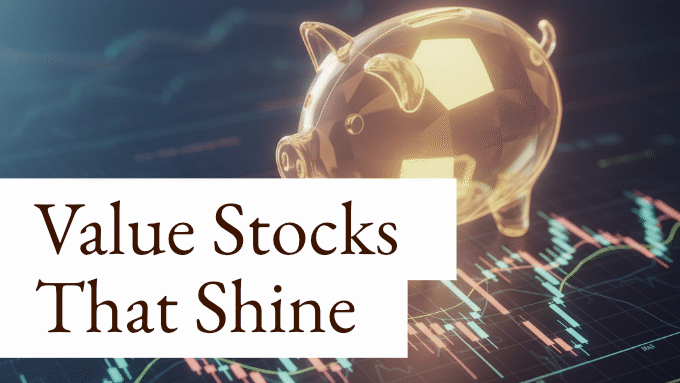
Despite warnings of market bubbles and overvalued stocks, true value opportunities still exist if you know where to look. Obermatt’s Value Rank and 360° View help find companies with attractive fundamentals and all-round strength, even as US, Swiss, and German indices hover near historical highs. Disciplined investors can still build resilient, long-term portfolios by focusing on undervalued stocks with strong quality metrics. See which stocks are still a good value.
Read More
Recently, we took an important step: Our well-known 360° View, which was previously only available with a paid subscription, is now free for all investors. This means anyone can access a single, clear score for any company—a shortcut to spot red flags and potential winners. For those who want to dig deeper, the detailed underlying ranks for Value, Growth, Safety, and Sentiment are available to explore.
Read More
In the world of investing, diversification is a key strategy for reducing risk. While many believe this requires a portfolio of hundreds of stocks or investing in an index fund, economic research shows that a portfolio of just 25 to 30 well-chosen stocks is enough to achieve most of the benefits.
Read More
Once hailed as the perfect solution for easy, low-cost investing, ETFs have become a multi-trillion-dollar industry. But behind their promise of diversification and simplicity lie hidden risks that are growing more significant every day. From dangerous concentration in a handful of mega-cap stocks to hidden costs and market distortions, the very things that made ETFs popular are starting to show serious cracks. Read our full analysis to understand why picking individual stocks might be a smarter path for the modern investor and how a systematic approach can help you navigate this complex landscape.
Read More
Whether you're new to investing or have years of experience, you've likely encountered the same frustrating reality: traditional stock analysis often yields little helpful information. Analyst reports contradict each other, and financial media chase yesterday's stories. Meanwhile, private investors are left wondering which companies actually deserve their investment dollars. The Obermatt Method cuts through this confusion with a fundamentally different, and better, approach.
Read More
The market efficiency hypothesis (EMH) states that all available information is already contained in share prices. Price changes are therefore caused by new, unpredictable information, which makes it very difficult to systematically beat the market. Stock picking or market timing offer no lasting advantage in an efficient market.
Read More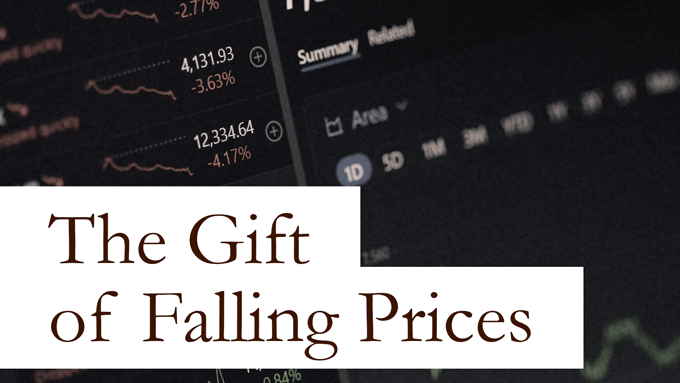
Market slumps feel frightening, but for a disciplined saver they’re a hidden windfall: by investing the same amount at regular intervals, “slowly in, slowly out”, you automatically buy more shares when prices are cheap and fewer when they’re pricey, lowering your average cost and letting even a modest recovery lift your portfolio. History proves the point: steady buyers in chronically weak markets such as Italy’s FTSE MIB still finished ahead, because crashes double the gains on the bargain-price shares they pick up. The key is to diversify across 20-plus stocks, industries, and regions so no single economy can derail you, keep a small cash cushion to pounce on dips, and ignore the urge to time the market. In short, volatility isn’t a threat; it’s the engine that turns patience and regular investing into long-term growth.
Read More
For years, we’ve been told that the stock market is a game best left to the “smart money” on Wall Street. Yet the evidence points the other way: The S&P 500 Dow Jones Indices SPIVA U.S. Scorecard shows that more than 90 % of actively managed equity funds lag their benchmarks over a 15‑year horizon. What chance does an ordinary investor have if the vast majority of full‑time professionals, with research teams and trading floors at their disposal, fail to beat a low‑cost index fund?
Read More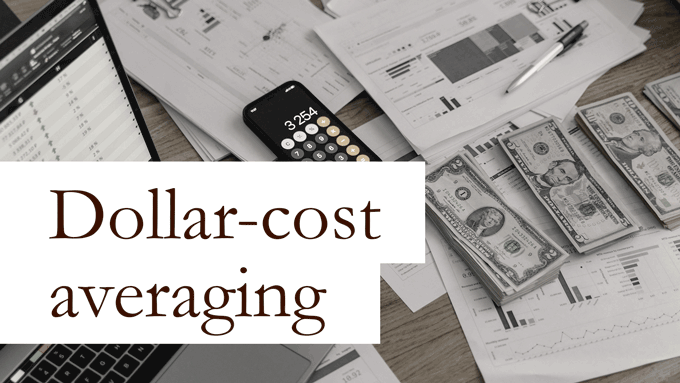
Dollar cost averaging (DCA) is a simple strategy for building up assets over the long term. It involves regularly investing a fixed amount in stocks or ETFs, regardless of the current price. This means that you automatically buy more shares when prices are low and fewer when they are high. Over time, this results in an average purchase price that compensates for fluctuations. The advantages and disadvantages, impact on performance and for whom this strategy is suitable can be found in the full article.
Read More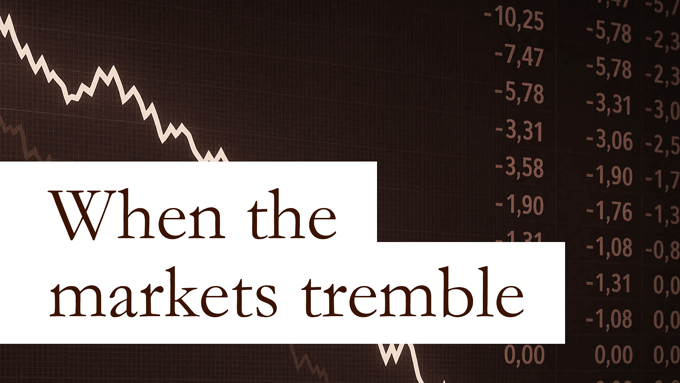
Market corrections are a natural part of stock market activity - they occur regularly and mark temporary falls of at least 10 % compared to previous highs. The slump in April 2025 was particularly impressive, triggered by new US tariffs that led to panic selling worldwide. At times, the S&P 500 lost over 12 % within days. Historical examples show: Even severe setbacks such as 2008 or 2020 have been overcome. Long-term investors benefit if they remain calm, diversify and use setbacks as buying opportunities. The key is not to react emotionally, but strategically, with a clear focus on long-term goals.
Read More
Learn more about our latest addition: a detailed, easily readable and understandable in-depth analysis and buy/sell recommendations for all of the 6,500 stocks covered, based on our experience built up over more than 20 years.
Read More
Should you invest in index funds, popular today, mainly in the form of ETFs, i.e. index funds that are traded on an exchange? Our opinion: Index funds are a good solution for investors, but not necessarily the best. Find out why we say it this way.
Read More
It was six years ago when we published our first introductory videos. We answered the key questions of novice investors already back then. The videos may now have a somewhat dated look and feel, but the content is still valid and state of the art.
Read More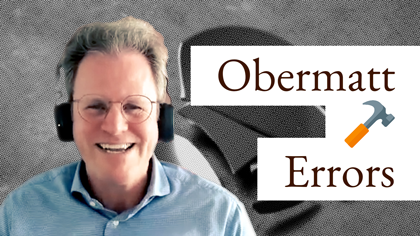
How can the Obermatt Method save you from your own psychological errors when stock investing? Dr. Hermann J. Stern explained this during one of our online coffee chat stock discussions.
Read More
Algorithms and intelligent software can help with various aspects of life and work, but stock investing isn’t one of them, as Dr. Hermann J. Stern explained on April 29th, during one of Obermatt’s weekly online coffee chat stock discussions.
Read More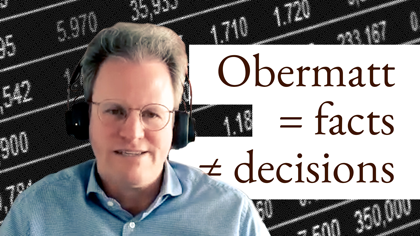
Obermatt doesn’t make investing decisions for you. Obermatt makes facts transparent and easily understandable as Dr. Hermann J. Stern explained in our weekly coffee chat Stock discussion of 29th of April.
Read More
An interesting topic arose for one of our weekly online coffee chat stock discussions: What is the Value Rank and how does it compare to the Quality aspect sometimes cited by investors. Dr. Hermann Stern explained this on February 18th.
Read More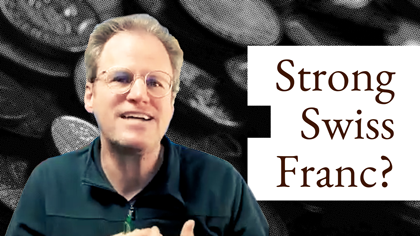
What is behind Swiss Franc’s strength - Dr. Hermann Stern explains in one of our online coffee chat stock discussions.
Read More
We have stopped equity research for companies in dictatorships. It makes no sense to support systems of power that put us at risk in free democracies. Today Obermatt evaluates nearly 9000 stocks in 54 countries. You can find out which countries we cover here.
Read More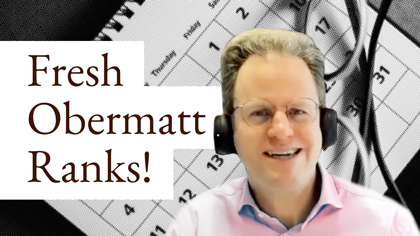
How often does Obermatt update the stock ranks? One of the guests of our weekly coffee chat Zoom stock chat wanted to know this, so Dr. Stern explains.
Read More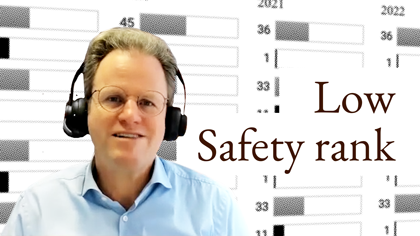
One of the guests of our weekly Zoom coffee chat stock chats wanted to know why exactly some of the companies have low Safety ranks - is it the company or the Obermatt Method? Dr. Stern explains.
Read More
How do you answer the question: Where in the world are stocks cheap? This is what the Obermatt Index Research does. It applies the Obermatt Method not on an individual stock but on an entire index. Read and listen to the benefits.
Read More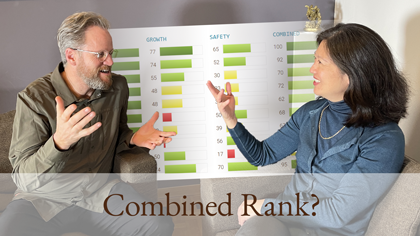
The Obermatt Combined Rank is sometimes a little confusing because it is not the average of the other three Value, Growth and Safety Ranks. This has a reason as explained here.
Read More
Obermatt Managing Director Dr Hermann J. Stern discusses the performance of his own portfolio from 2015 to 2020 in this podcast.
Read More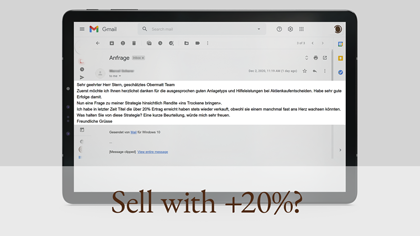
An Obermatt Premium user asked recently if it is correct to sell stock after they made a 20% profit. The idea is compelling: “Make the money and run,” as Obermatt CEO's New York godfather likes to say. Does this make sense? Listen why not.
Read More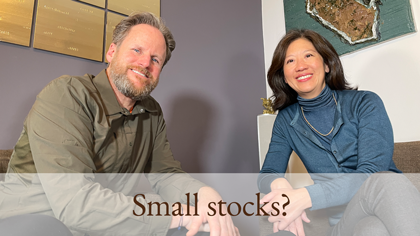
Obermatt CEO Dr. Hermann J. Stern answers questions by his wife Dr. Candace S. Cheng on stock investing as she begins to manage her own portfolio: “Should investors invest in small stocks?”. Yes and no, explained in this interview section.
Read More
In sports, measuring performance is relatively simple, because you measure what you see. But this is not the case when investing, because what you see is not proof. When we at Obermatt say that our ranks help you to be better than the market, we do not claim this based on our own figures, but based on extensive studies by third parties.
Read More
The Obermatt Ranks make investing easier because the rank is easy to read: The higher the rank, the better the financial characteristics of the stock. Nevertheless, ranks may be misunderstood, because sometimes they are understood as recommendations. But they are not.
Read More
How and how often do you maintain your portfolio? Here Obermatt CEO Dr. Hermann J. Stern discusses how here at Obermatt we do it ourselves and examine all four of the portfolios we have built up over the past few years. We sell or buy investments that are too small; simply not too often is the most important motto.
Read More
Long-term portfolio maintenance: Diversify your portfolio by investing in different sectors and regions. If possible, hold shares in large companies and make sure that you end up with at least 30. This is the ‘Königs-Prinzip’ the leading principle of portfolio maintenance.
Read More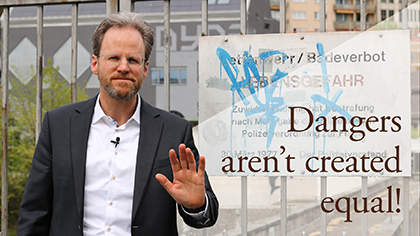
Using case studies, Obermatt CEO Hermann J. Stern shows how presumed dangers are not really dangerous when investing. Not even scandals such as with VW or Nissan. Not even wrong calculations of Obermatt ranks on the basis of old or incorrect data necessarily damages your weatlh. In this insight, we show you why.
Read More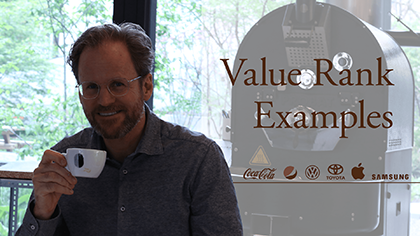
With the concept of Value Ranks, Obermatt CEO Hermann J. Stern takes a close look at the shares of real companies such as Apple, Samsung, Pepsi, and Coca Cola. Using practical examples, the reader should develop a feeling for how he can use the Value Ranks to his advantage as an analytic tool.
Read More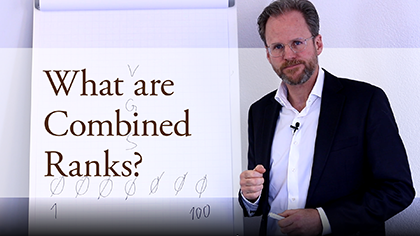
Introducing the Combined Rank. The basis for this is the average of the Value Rank, Growth Rank, and Safety Rank. Comparable companies are also ranked and then listed in the final order. The company with the lowest average of the three ranks is also assigned the lowest Combined Rank and vice versa.
Read More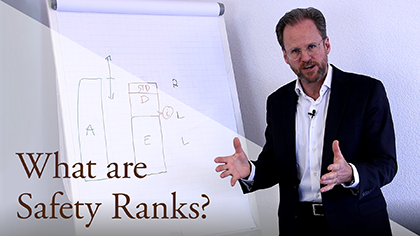
The Safety Rank is the second most important rank at Obermatt. "A good Safety Rank" does not mean that it is safe to invest in a stock. Instead, it means that the company is safely financed. The Safety Rank itself is made up of three key figures: The Refinancing Rank, the Debt Rank, and the Liquidity Rank.
Read More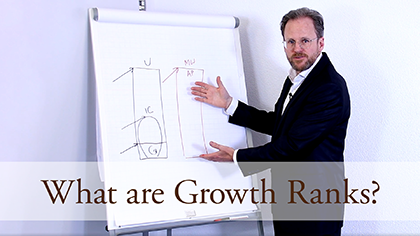
Growth Ranks are based on the past. Therefore, for investing decisions, they should be seen as "indicators" rather than "forecasts". A bad Growth Rank does not always have to mean something bad for the future of a company - and a good rank does not necessarily mean something good.
Read More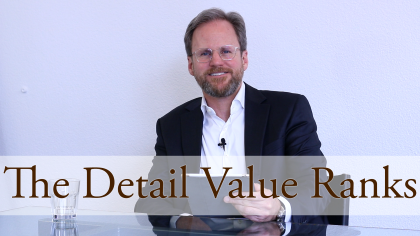
We reveal what exactly lies behind the Obermatt Value Rank - such as the sales multiple or the dividend rank. After showing that the Value Rank is a consolidated measure, we apply it to concrete case studies.
Read More
Obermatt CEO Hermann J. Stern looks at what Obermatt Value Ranks are and how they can be used to make our own investment decisions. With Value Ranks you can create your own investment story.
Read More
Financial fact-analysis as an alternative to common investment models for self-investors. At Obermatt, we use fact based investing or smart-beta investments to create the best possible portfolio for our clients.
Read More
The challenge when investing in stocks is the balance between the principles of diversification and concentration. Risk minimization is generated by risk diversification, but the investment risk should not be so low that the profits generated from it are of little significance.
Read More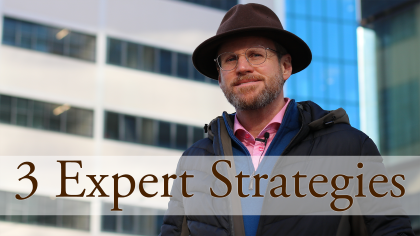
Last week, Obermatt gave new stock investors 5 important tips to avoid the most common beginner mistakes. Today we have three tips for advanced investors – and for those wanting to get there.
Read More
You don't have the foggiest idea how the stock market works? We'll tell you the 5 most important points to keep in mind for newcomers. In summary, they are: Make all the beginner's mistakes and because you learn with every mistake and profit in the long run.
Read More
Are conservative stocks such as Swisscom and Swiss Re better? Yes and no. Even large, well-known companies can go in the wrong direction - see Swissair. Nevertheless, they usually cause fewer unpleasant surprises than small companies.
Read More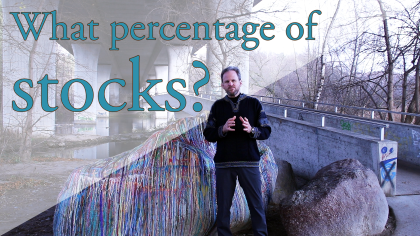
How many stocks should be included in your investment? Those who are part of a pension fund no longer need bonds, and those who own a house do not have to invest in real estate - in this case, you can invest the rest 100% in stocks.
Read More
Anyone who has ever bought stocks knows this feeling: the desire to sell as soon as the price drops and the share has incurred a loss. However, out of all the reasons for selling a stock, this is pretty much the worst one.
Read More
Why the prehistoric brain, through ancient fears and reward principles, leads us in the wrong direction when it comes to stock investing. The results are overpriced security purchases and panic sales. One solution would be to ignore one's portfolio.
Read More
Are you new to buying stocks? Then Obermatt's CEO Hermann J. Stern, an experienced investor, wants to show you the 5 most common mistakes beginners make. Interestingly, all of them are caused by emotions.
Read More
Dr. Hermann J. Stern, Obermatt CEO has presented five typical investor types. Can you identify yourself with any of them? If so, now you have the opportunity to reassess your investment performance to date. From disinterested to autonomous investors, one thing is always the same: the decision is entirely up to you.
Read More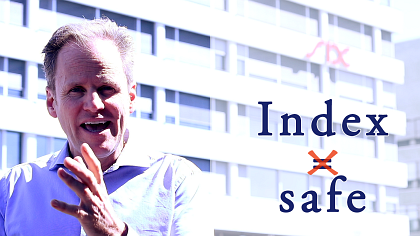
ETFs are nowhere near as secure as people like to think and say. For one, they overweight certain industries. Many ETFs do not follow the principle of diversification but invest almost all of their capital in just a few securities or sectors. Some hold no shares at all but instead are betting on stock prices with other financial institutions. Not at all safe. Even you can do it better.
Read More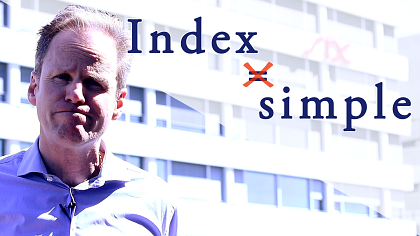
No two ETFs are the same. They each have a few "pros" and a few "cons" compared to their alternatives. To understand the implications, one needs to know five ETF characteristics: profile, cost, liquidity, risk and regulatory. You already guessed it: ETFs are anything but simple. In the video, Obermatt CEO Hermann J. Stern shows how bad these qualities can turn.
Read More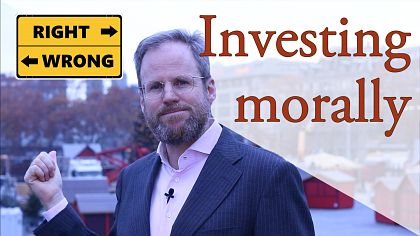
There is no standard definition of morality when investing. Everyone has to decide for themselves. However, if you leave the investment to an asset manager, you lose control over those decisions and your money may end up in areas that go against your morals
Read More
Author Thomas Meyer started investing in stocks because of Obermatt CEO, Dr. Hermann J. Stern's blog. He didn’t just ask Hermann what exactly he should do – but also what he should stay away from. D. Stern's advice was simple: Stay away from anything that is currently "hot"!
Read More
One thing is certain: The next stock market crash will happen. The question is, what can we do about it? Hedging against a crash doesn’t make a lot of sense. A better solution is to invest regularly and in a balanced way.
Read More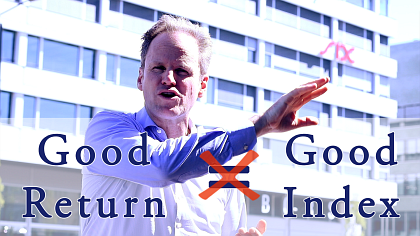
Suppliers of ETF like to advertise with the good return that should be associated with this investment opportunity. Bud an ETF with a good return today can have a bad one tomorrow. He has achieved his good return with stocks that are now expensive. What goes up to the sky, comes down again. Likewise, the price of expensive stocks will fall sooner. Thus, good ETF returns are indications of price corrections.
Read More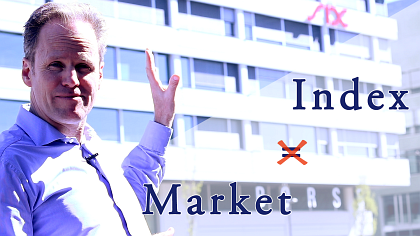
Well over half of the world's MSCI World index is US equities, 30% technology, and healthcare companies, and 20% financial companies. This is not the world economy, but a not very representative and rather arbitrary selection of it. The same applies to the S & P 500, the DAX and the Swiss SMI. How little index funds map the actual market is shown in our free Investing Guide.
Read More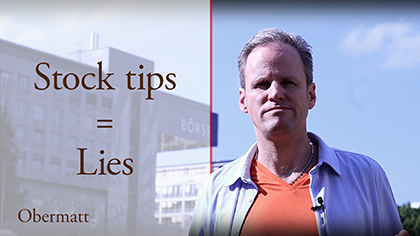
Investment advisors are mostly lying to you. They recommend investing in what everybody believes in. However, this is what makes stocks expensive. Their advice only helps if it is contrarian. But that is way too risky. That's why at Obermatt we don't listen to advisors, we believe in numbers.
Read More
If you visit your family doctor, you assume for good reason that he is interested in maintaining your health. When it comes to your asset manager, however, you should be more skeptical, because his interest is not in your retirement assets, but rather – strictly speaking – the opposite.
Read More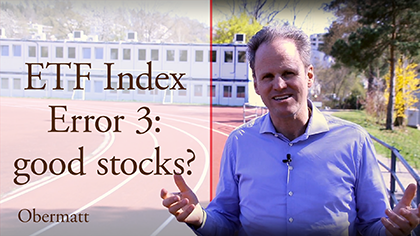
ETF index funds typically weigh stocks by enterprise value. The more expensive the company, the greater the weighting in the index. If you do research, you soon discover that selecting the most expensive stocks is not necessarily ideal for the best returns.
Read More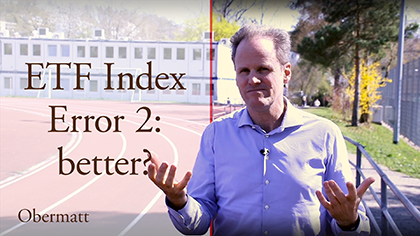
Investors as a whole can never beat the index because the selection of stocks alone does not generate additional returns. For this reason, the entire group of active asset managers is always the same as the index. Only the asset management costs can make a difference.
Read More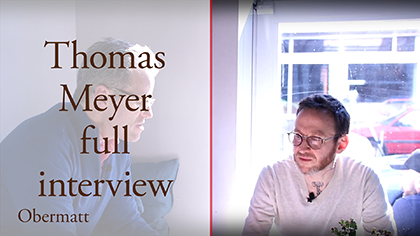
Obermatt CEO Dr. Hermann J. Stern met Swiss author Thomas Meyer for an interview in Zurich. In 5 conversations, they discussed various investment strategies for stocks and how he can combine moral thinking with the stock market. In addition, Hermann explained to him how he can use good investing to generate up to 50 percent more capital for his retirement.
Read More
Like all people, author and new investor Thomas Meyer doesn’t like losses. However, losses on the stock market are a daily occurrence, because stock prices fluctuate. And they fluctuate more and more. Thomas knows this but wants to know why.
Read More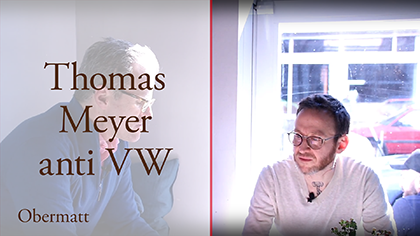
The stock market doesn’t behave as we expect it to – otherwise, nobody would lose any money. Instead, the market often does the opposite of what you think will happen. After the emission scandal, VW shares went down for a while but have since been rising continuously. For this reason, Thomas Meyer doesn’t buy put options against VW.
Read More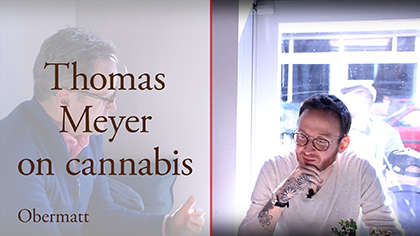
Episode three of Dr. Hermann Stern's conversation with author and new investor Thomas Meyer. He wants to know where he can find ideas for more investments. Hermann tells Thomas to do what he thinks is right. As he doesn’t like VW, he instead invests in cannabis stocks because he thinks they have a lot of potential in the health sector.
Read More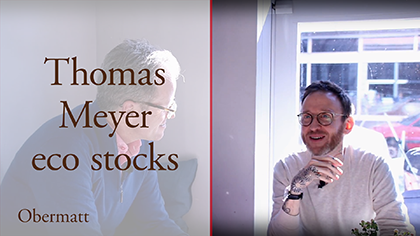
Obermatt CEO Dr. Hermann Stern keeps talking to author and new investor Thomas Meyer. He doesn’t want to buy stocks from companies that treat nature badly. Stern can put him at ease: You won’t be at a disadvantage if you buy these kinds of stocks. On the contrary: These companies might even have better perspectives for the future.
Read More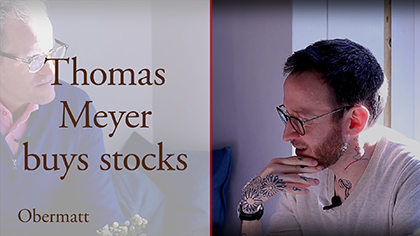
Dr. Hermann J. Stern met Swiss author Thomas Meyer for an interview. As you can imagine for a writer, Thomas has always been skeptical of financial issues. However, after Hermann explained the whole thing to him, he had a change of mind and started investing in stocks himself.
Read More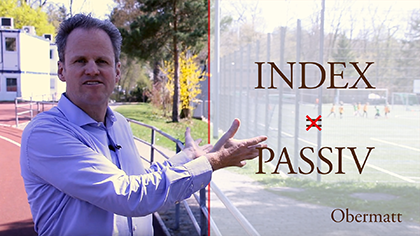
Index funds are not passive. Each index is an active selection of stocks. The only difference is that it is not the fund manager who chooses stocks, but the stock exchange or an index provider. Index providers typically select the largest stocks with the largest stock market value.
Read More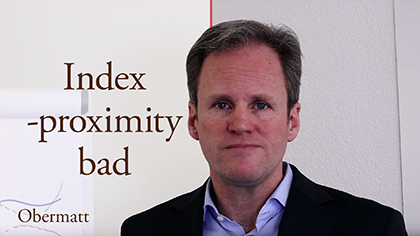
The last few quarters say nothing about the next 30 years. This is probably known to everyone. Unfortunately not to the financial professionals, because they look for the assessment of risk at the deviation from the index. The more a stock deviates from an index, the higher its risk, they think. But that is completely wrong as we show in the video.
Read More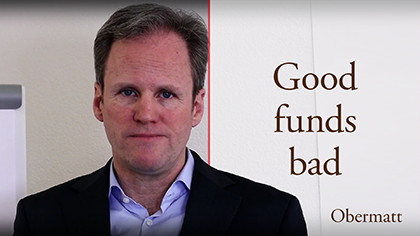
Investors who buy funds that show good historical returns buy funds whose stocks are expensive - otherwise, the return would not have been good - and therefore are more likely to fall. That's why mutual funds are probably the most complex things an investor can do.
Read More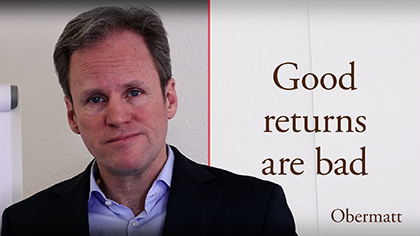
Who doesn’t think the higher return is the better return? But that's not necessarily the case. The problem is on the timeline. If you only look at the last few quarters or years, you may be wrong. Indeed, the returns on stocks fluctuate far wider than they are apart. Therefore, investors are concerned: Returns are a bad source for assessing investment performance, especially when only a few years are looked at as shown in the video.
Read More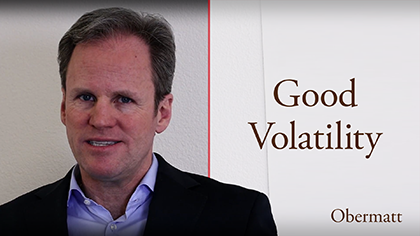
Investors are most scared of stock market declines. Unfortunately, they belong to stock investing like the "face full of snow" to skiing. That's why investors hate fluctuations in stock prices. They take refuge in safe assets such as Swisscom, whose shares fluctuate less than others and use hedging transactions to protect themselves against stock market crashes. But how bad are the fluctuations? We are saving for 30 to 50 years and not just for the few years that stock market cycles usually include. But more importantly, stocks that fluctuate more typically have higher long-term returns than those that fluctuate little. The long-term higher return would actually be in the interest of the investor. But who wants to get hold of this return needs a robust stomach. The realization? Fluctuations are not bad and a big crash from a high level is better than a low "safe" return on a low level, even though it hurts in the short term and we all hate such pain. Here we have to defend against our gut feelings because it leads us astray. Despite larger fluctuations, despite major crashes, the green alternative remains the better investment.
Read More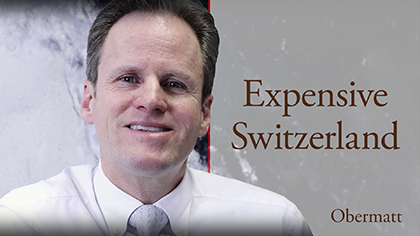
It is wrong to assume that sustainable stocks have lower returns. If that were true, then those stocks would provide arbitrage opportunities to smart investors. However, the list of sustainable Swiss stocks of the current Obermatt Stock Update Premium only contains expensive stocks. This means, investors, benefit from investing in sustainable stocks, but not in Swiss stocks.
Read More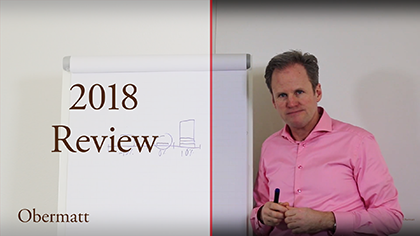
It’s January, and we’re asking us what the coming stock year will bring. One thing is certain: It will be insane. 2017 was insane, and 2018 will be insane as well, at least that’s what the experts are implying. However, what does that mean for Obermatt's stocks? This is the question we’re trying to answer today.
Read More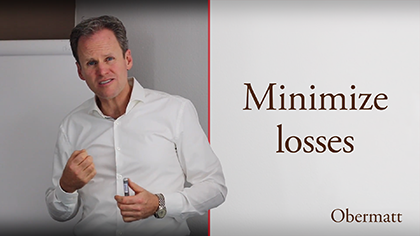
Michael Stadler from Osteopathy Central is now convinced that he would like to start investing in stocks. It is important for him to start with small amounts because that way he can cope with the potential losses.
Read More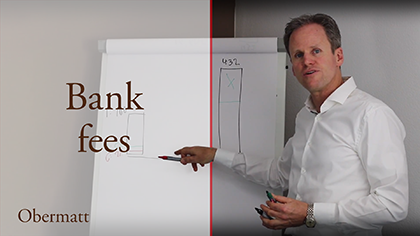
The costs for a consultant or a financial product are usually well-hidden. For example, the trading costs for the purchases and sales of shares are not even shown in the fund's management fees. To show you why it’s worth investing in stocks by yourself instead of visiting a consultant or buying a product, we will look at an example.
Read More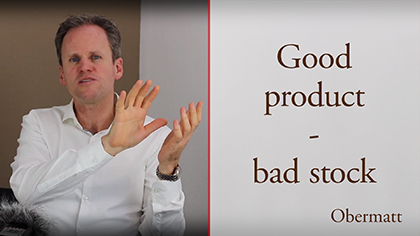
When choosing a stock, you should not confuse the question of whether you like the product with the question of whether you should buy the stock, because they are two different things. Of course, it can be helpful to ask yourself whether you really like the company or the products, but ultimately your decision is about buying the stock and not the product.
Read More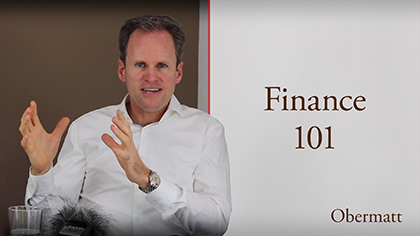
Michael Stadler from Osteopathy Central wants to know which financial ratios he should take into account when choosing a stock. The most important financial facts can be divided into two categories. Those that make sense and those that are mostly based on hope. The financial facts that make sense can be explained rationally.
Read More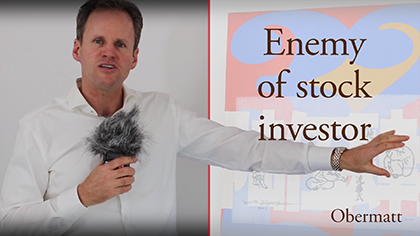
You have to know that you yourself are your own biggest enemy when it comes to stock investing, as you are a human being and human beings are controlled by emotions. Newspapers, the media, and friends will tell you about which companies are currently on the agenda.
Read More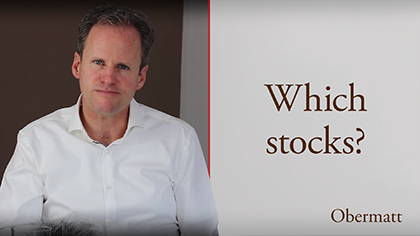
Before he starts with stock investing, Michael Stadler from Osteopathy Central has a tricky question for Obermatt CEO Hermann J. Stern: Which stocks should he buy? Fortunately, this is not a difficult question. When choosing a stock, you could simply rely on the role of a dice.
Read More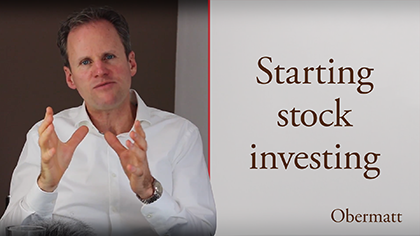
The amount you should invest in stock is, of course, dependent on your assets. Most people in Switzerland save the most between the age of 40 and 60. Osteopath Michael Stadler of Osteopathy Central is 33 years old and therefore has many years to learn the ins and outs of stock investing.
Read More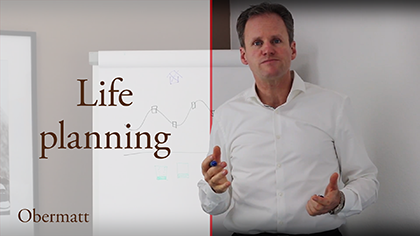
Michael Stadler of Osteopathy Central, whom Obermatt CEO Hermann Stern coaches on his retirement savings, already knows: investing in stocks has a big drawback: he cannot do precise planning anymore. For example, if you put your money under your pillow, you will know exactly how much you have saved and how long it will take until you can buy a house.
Read More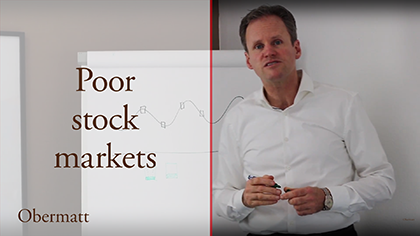
Michael Stadler from Osteopathy Central is still not quite sure about the stock market. How can a system such as the stock market be trusted if it regularly creates losses and makes investors stress about their money?
Read More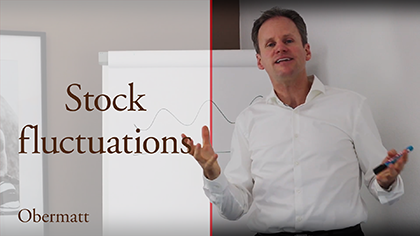
Michael Stadler from Osteopathy Central would now like to know how he should deal with the strong fluctuations of the stock market. If the volatility is so high, then surely there is a big chance of a loss!
Read More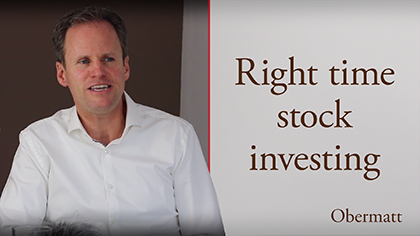
In the first videos, we found out that Michael Stadler of Osteopathy Central would like to invest in stocks to save for his retirement. Now he is obviously looking for the best time to enter the stock market. As is Obermatt's CEO.
Read More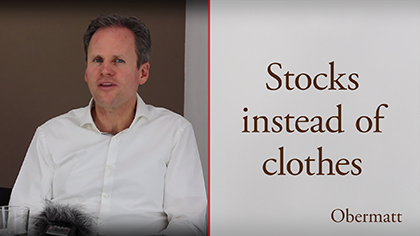
It is often said that novices should leave stock investing to the professionals. This is also the question of Michael Stadler from Osteopathy Central, whom Obermatt CEO Hermann Stern is helping with his retirement savings.
Read More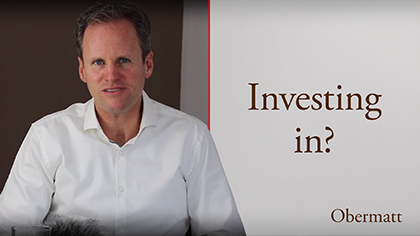
There are three main investment opportunities that generate long-term returns: Real estate, bonds, and stocks. Today we will talk about all three as strategies for long-term investing.
Read More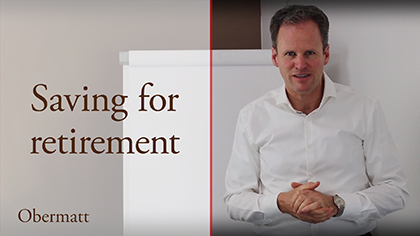
After a skiing accident and months of muscle pains, Obermatt CEO Dr. Hermann J. Stern went to see his neighbor, osteopath Michael Stadler from Osteopathy Central in Zurich. After he solved Hermann's problems with surprising ease, he asked if Hermann could help him with his retirement savings.
Read More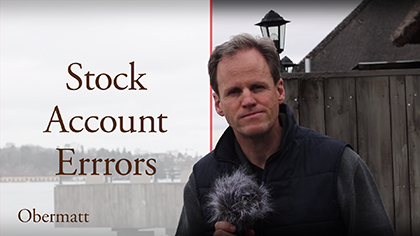
What you see when you look at your stock trading account statement can be deceiving. On Hermann Stern's statement, one stock seems to stand out as underperforming, but is it really? That stock is Meyer Burger, which represents an 85% loss. However, a closer look shows that the sale of the Meyer Burger subscription rights has played a greater role than the shares are now worth.
Read More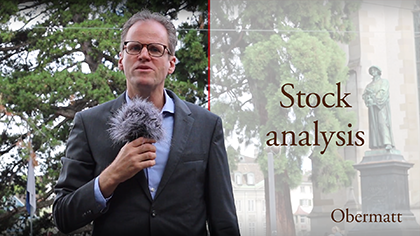
We make mistakes, just like everyone else. That’s why it’s a good idea to question the stock ratings if they look fishy. That's not so difficult, as Hermann Stern shows with the example of CNH Industrial.
Read More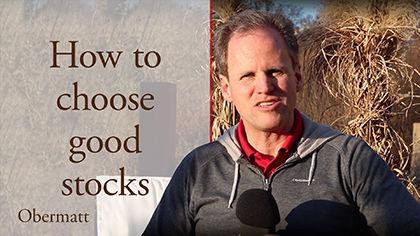
Investment professionals generally recommend index funds to new investors because index funds buy and hold many stocks at the same time, and are therefore considered safer. However, frequent readers of this blog will know that index funds also have their disadvantages.
Read More
After discussing Italy, Spain and Portugal we turn to the third and biggest stock market misunderstanding: Japan's lost two decades. Obermatt CEO Hermann J. Stern analyzed the last two decades more closely. It’s true that the Japanese stock index fell from 1996 to 2016. However, it’s a mistake to assume that this was bad for investors, because the stock index values are both wrong and unrealistic.
Read More
If we use realistic assumptions for stock investment, then the supposed catastrophe countries for stocks suddenly no longer look so bad. Take Spain for example. The perception is that Spain is bad, right? That’s fake stock news! The Spanish stock index, IBEX, is higher than at the beginning of the century.
Read More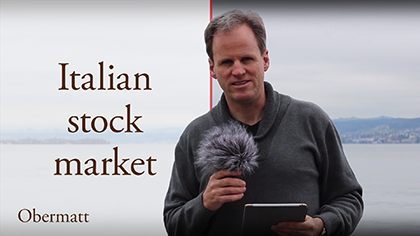
The newly coined term, "fake news" has been all the rage since the US election. What fewer people know is the fact that there are also "fake stock news". For example, the reports that investors would have lost money by buying stocks from Italy are not entirely accurate.
Read More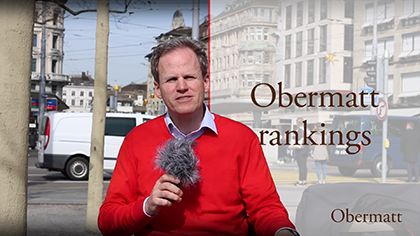
If you have been following this blog for some time, then you will know that Hermann Stern only relies on measurable financial facts when considering equity investments. He ignores all subjective opinions and any and all future projections. This can sometimes lead to major differences in stock analysis, as he explained last week with the Temenos and Kudelski case study.
Read More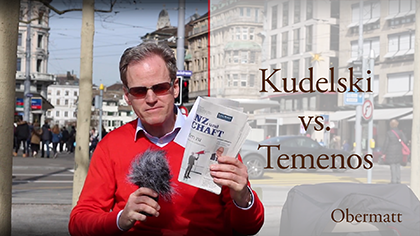
Last week, a reader asked Obermatt CEO Hermann Stern whether to buy Kudelski or Temenos. Looking at the Obermatt rankings, Kudelski had a ranking of 75 and Temenos had a ranking of 1. The clear answer is Kudelski. The same reader also follows Finanz & Wirtschaft, who stated that they were not convinced that Kudelski was a good buy but that Temenos had bright prospects. Who is right: Obermatt or FuW?
Read More
At this time of the year, forecasts for 2017 can be seen and read everywhere. What is astonishing to see is how little the experts were able to correctly predict last year. Nevertheless, forecasts remain popular, especially among investors. Dr. Hermann Stern hardly pays attention to these predictions, especially after reading Peter Lynch's book "Beating the Street".
Read More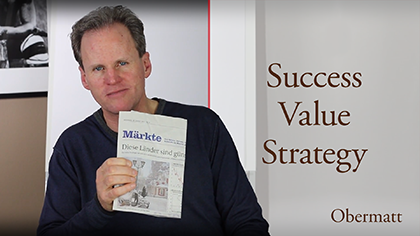
Last week, Obermatt CEO Hermann J. Stern criticized an FuW article on value markets, concluding that value markets do not offer preferential investment opportunities, as the FuW postulated. This is because "value markets" do not achieve higher returns than markets with less "value".
Read More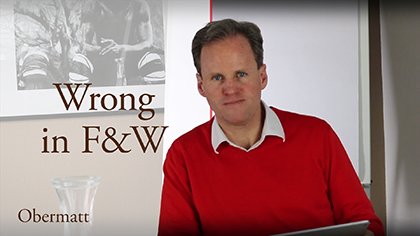
Recently, Finanz & Wirtschaft (FuW) recommended investing in "value" markets because value strategy was the best investment strategy in 2016. Warren Buffett has made a lot of money using this strategy and Robert J. Shiller was recently awarded the Nobel Prize for proving that the value strategy actually works.
Read More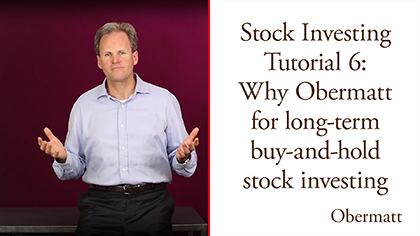
Why Obermatt for stock investing? Because we make it easy for you. We do the number crunching so you can make quick and informed decisions. We empower stock investors with the know-how and stock analysis they need to get started. We make our stock analysis easy to understand, even if you don't have a lot of financial knowledge.
Read More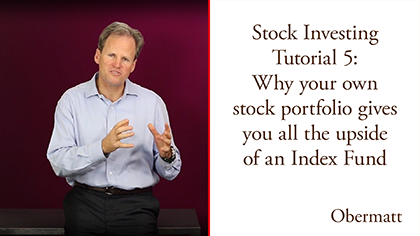
What advantages does your own stock portfolio offer compared to index funds? Index funds might not give you all the upside you think they do. This video explains why.
Read More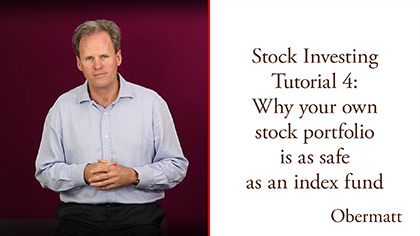
Can my stock investing be as safe as investing in index funds? The advantage of index funds is that they are diversified, meaning that they hold a number of different stocks. This gives you diversification so that not all your eggs are in one basket. But, just how many eggs do you need to be diversified?
Read More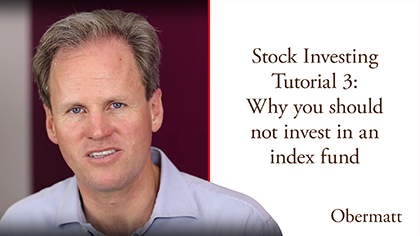
Why shouldn’t long-term investors buy stock index funds? First of all: Index funds are a good solution for long-term stock saving. However, they usually aren’t the best solution. Obermatt shows you the best solution.
Read More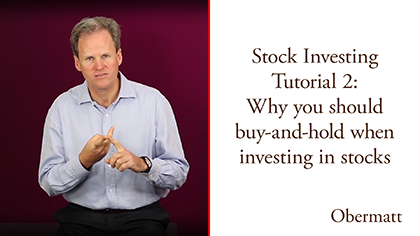
How should you go about investing in stocks? We believe in a buy-and-hold strategy of holding stocks for the long term. Trading stocks - buying stock when you think they’ll go up and selling when you think they’ll go down - costs you fees each time you trade and is unsuccessful for most traders.
Read More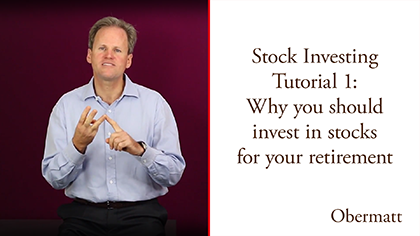
You already know that you should save for your retirement. However, where should you invest your savings? There are three big categories of investments that can bring you returns in the long run: real estate, bonds, and stocks.
Read More
A lot of things are hidden in the pillar 3a, for instance, the interest on the bonds contained in the portfolios. The legislation isn’t taking any action against this practice of hiding information, and the banks are glad about that.
Read More
This summer, we at Obermatt used our method to invest 100,000 Swiss francs in a total of twenty stocks. Last week, Obermatt CEO Hermann J. Stern took a closer look at the losses, and this week he will talk about the profits.
Read More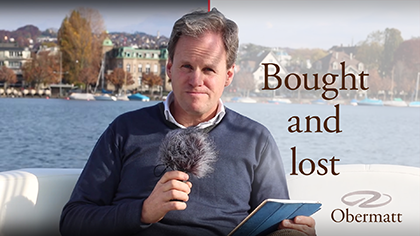
Dr. Hermann J. Stern of Obermatt finished investing the 100,000 Swiss francs that comprised the second portfolio he had started in spring. The goal was to invest 5,000 francs every week so that no more would be invested in any single stock or at any single point in time.
Read More
A friend recommended that Dr. Stern buys Logitech. The reason is that companies are now cutting their travel budgets and instead utilizing video conferencing. This should cause their stocks to go up. Sounds logical, so he looks at the Obermatt ranks.
Read More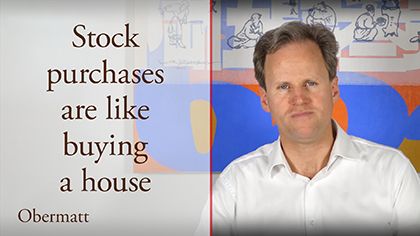
It’s hard to beat the stock market - unless you make it your calling and it’s not Dr. Hermann Stern's calling. This is why he invests without trying to beat the market. He is happy with the average stock market return. It’s much higher than the returns on bonds, the price increase on gold or the interest in a bank account.
Read More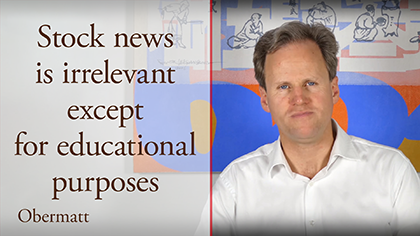
Dr. Hermann Stern has spent the last three blogs explaining that stock market news is irrelevant when it comes to making investment decisions. His argument is simple. Everything that is known about a stock is already included in its current price. If you read the same news as everybody else, what advantage could you possibly gain?
Read More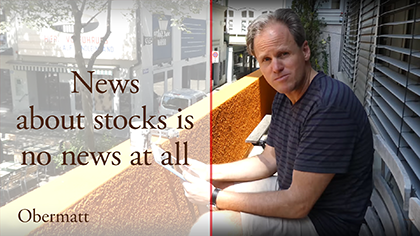
Over the past two weeks, Obermatt CEO Dr. Hermann J. Stern showed that stock investors do not benefit from good stock news or bad stock news. The reason is simple: What is generally known about the stock is already reflected in its price. If a stock looks good right now, then its price has already risen; and, if it currently looks bad, then its price has already gone down.
Read More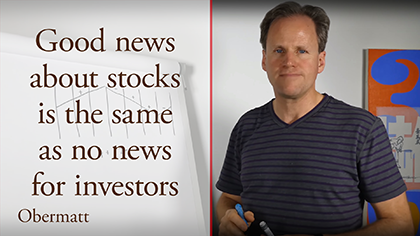
Many investors think that good news about a stock means it’s time to invest. They believe that if a stock is rising, it will continue to rise; and, if it is falling, it will continue to fall further. In this video, Obermatt CEO Dr. Stern will show whether this investment strategy works and under what circumstances.
Read More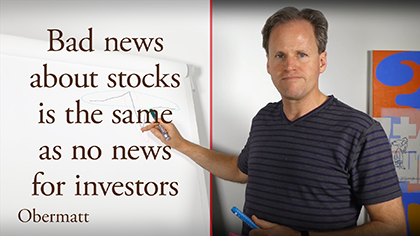
Most investors believe that reading stock news is an important part of the decision-making process of investment. This is far from true because what is known about stocks is already reflected in their prices.
Read More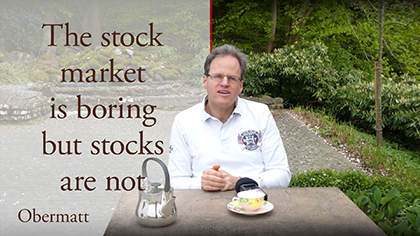
Here is something you won’t hear too often from stock analysts like Dr. Stern, Obermatt CEO: the stock market is boring. It’s boring because what’s one person’s gain is another person’s loss. It’s a zero-sum game.
Read More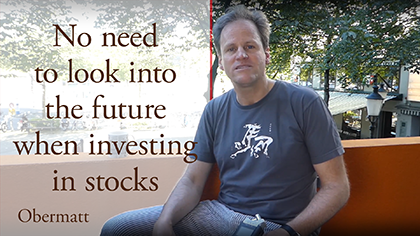
People that spend time investing in stocks do it primarily to have a better outcome in the future. Unfortunately, forecasting is a lot of work. In addition, it is subject to unexpected events, as Obermatt CEO Dr. Hermann J. Stern shows in this video through two simple examples.
Read More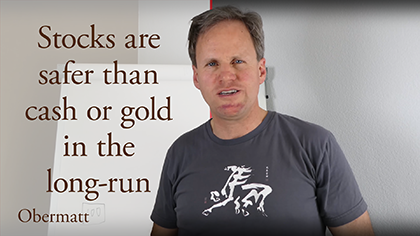
As Dr. Stern of Obermatt said in the previous video, "stock investing is like a boxing match". He got injured in hi weekly boxing match today. In sports, there is always a risk of injury, but the rewards are usually worth this risk. The same is true when investing in stocks.
Read More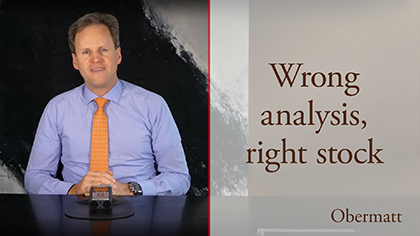
Both beginners and professionals are afraid of making errors when analyzing stocks. How justified is this fear? That’s a good question. Last week, Obermatt had a stock on its Top 10 List of Safe Stocks that was no longer trading on the market because we had old data in our system. Is this a problem? We show why not.
Read More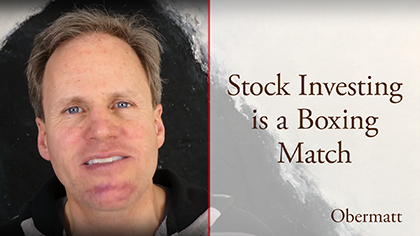
Today, Dr. Hermann Stern, the CEO of Obermatt got injured in his weekly boxing match with his usual sparring partners. You can see the red marks on his chin in the video. What does this have to do with stock investing? A lot.
Read More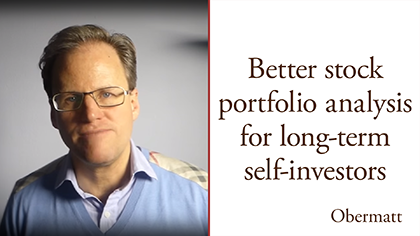
Most stock portfolio apps and services display the gains and losses of your stocks. This information might be useful when you analyze your past mistakes; something you should do from time to time. However, the gains and losses in your portfolio send dangerous signals when thinking about which stocks to sell and which to keep.
Read More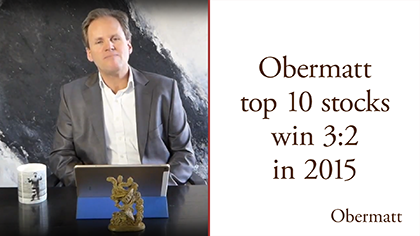
Google and its holding Alphabet made the headlines this week because the company was bigger than Apple for a short time. Should we invest in Alphabet? "Never change a winning horse", as they say. Sounds like a look at the data is in order.
Read More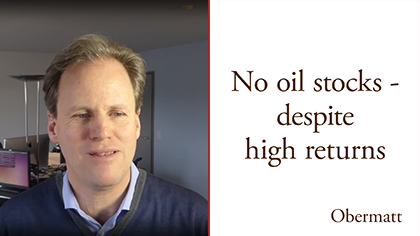
Dr. Stern's friend Anders Bally runs sentifi.com, a data mining company for investors. His team in Vietnam scans gigabytes of social data each day to identify what people think about investments. He believes that this will put him ahead of the curve. That might be true.
Read More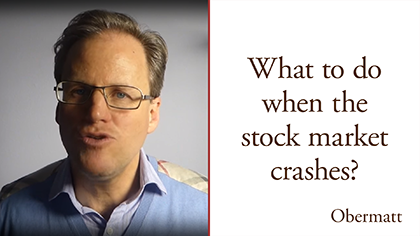
It has been a terrible week for stocks. Even worse, the entire time we have been building our stock portfolio on YouTube since summer 2015 was a bad time for stocks. We are buying European stocks and the Euro Stoxx 600 index was down more than 12% during that time.
Read More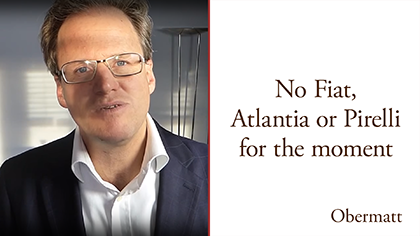
Obermatt CEO, Dr. Hermann J. Stern is not buying any stocks from Italy right now for various different reasons. He didn’t buy Atlantia because the Obermatt ranks couldn't be verified with reuters.com. He decided to file a report with the head of stock analysis at Obermatt to investigate the differences.
Read More